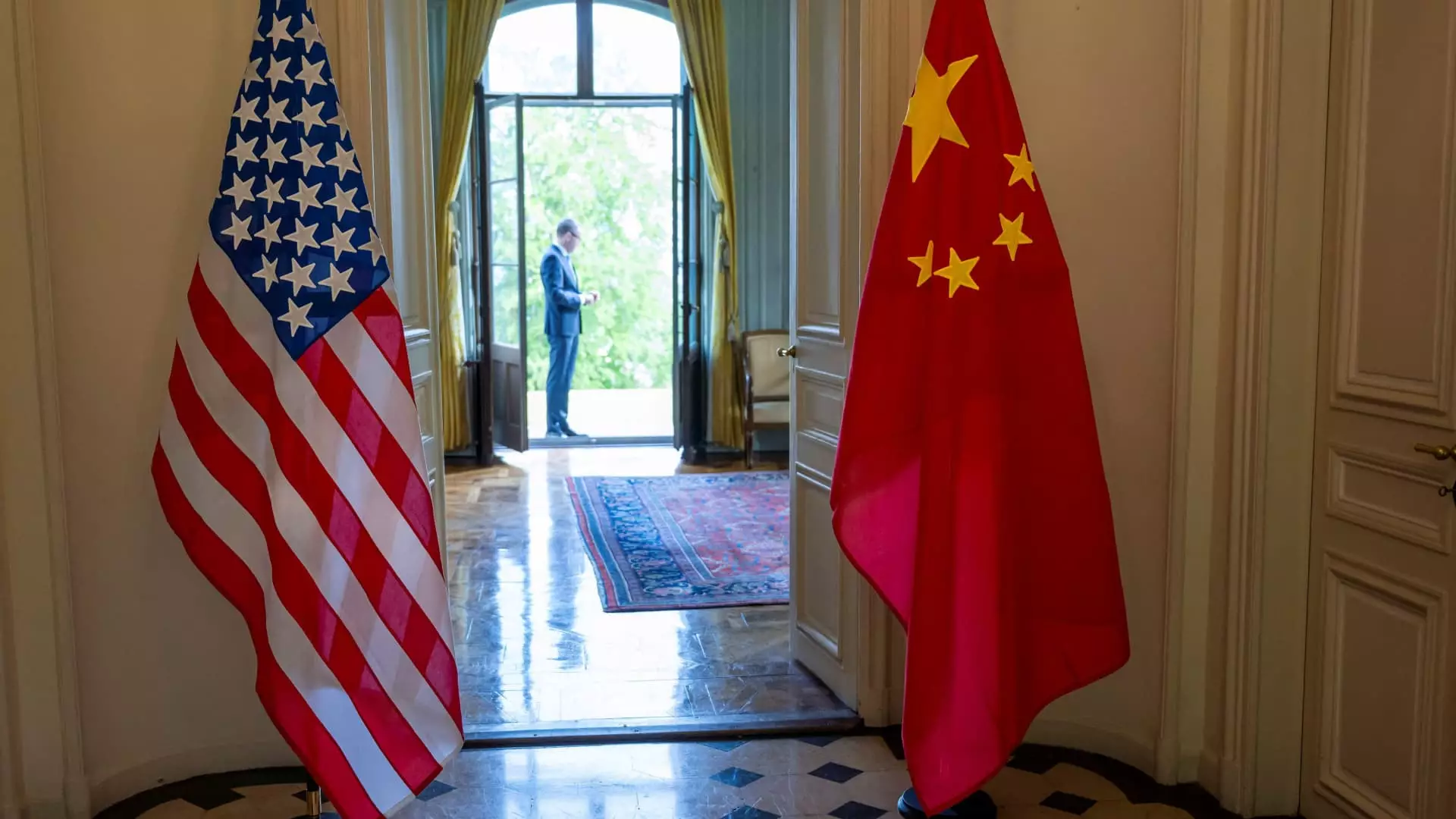The recent declaration by Treasury Secretary Scott Bessent, indicating that U.S.-China trade talks are “a bit stalled,” raises a significant alarm bell. In an age where global dynamics shift with a tweet, one has to wonder if a stalemate signifies more than just a temporary bump on the road; it could be a full-blown crisis in the making. Bessent suggested that direct communication between the leaders of both nations is necessary, yet this need also illuminates a deeper issue: the fragility of the relationship between the world’s two largest economies. We live in turbulent times where isolationism is gaining traction, and reliance on leaders to engage in friendly discourse seems, at best, a precarious strategy.
While Bessent’s optimism about future discussions brings a sliver of hope, we must look beyond mere bluster. The acknowledgment that both President Trump and President Xi Jinping must weigh in suggests a heavy reliance on personalities rather than policy frameworks. This raises the concern that trade negotiations are nothing more than a game of chess played by individuals rather than a cooperative effort by nations. Will a curt phone call ease the growing complexities that have arisen from tariffs and tech restrictions? History suggests not.
The Tariff Tug-of-War
In a recent turn of events, the U.S. and China tentatively agreed to roll back tariff increases for 90 days. While on the surface this might appear as progress, it is merely a pause in the greater struggle. The overshadowing truth is that the original tariff hikes exceeded 100%, and this knee-jerk reaction reflects a failing strategy. Tariffs act as short-term remedies to long-term issues; they do not resolve fundamental economic grievances. Instead, they further entrench animosities and alienate allies. By delaying a firm resolution to these trade disputes, both countries risk instigating a downward spiral where any hope of mutual benefit is overshadowed by nationalistic fervor.
Moreover, the U.S. drive for tech restrictions against Beijing adds another layer of tension. In a world increasingly dominated by technological innovation, cutting off access to technology does more than inhibit progress—it is a sword that cuts both ways. The U.S. might believe that limiting Chinese tech companies safeguards national security, but it inadvertently harms American consumers and businesses. This disproportionate retaliatory measure poses the question: Who truly stands to gain?
A Complicated Relationship
The complexity of U.S.-China relations is further compounded by distrust and espionage accusations. The war of words exchanged between spokespeople from both sides only escalates the situation. China’s Ministry of Commerce has consistently urged the U.S. to “correct its wrong practices,” assertions that clash with an American narrative laden with skepticism. This rhetoric does little to foster an environment for collaborative problem-solving. In fact, it suggests a disengagement from rational discourse, driving both nations toward bolstered defenses rather than cooperation.
As the market dynamics worsen, the irony is palpable: both countries are integral pieces of the global puzzle. Retaliatory measures could easily evolve into widespread economic dissatisfaction, limiting market access for everyone involved. Consequently, the failure to engage in serious dialogue might mean the collateral damage of a world economy already reeling from pandemic stressors.
The Human Element and Its Consequences
Amidst the political maneuvering, the ramifications on the common citizen remain stark. The recent U.S. decision to revoke visas for Chinese students exemplifies a troubling trend toward isolation. Such a move not only jeopardizes academic freedoms and future cooperation but also ultimately impoverishes cultural exchange, which has been vital in forming a bridge between nations. The charge by the U.S. government that this decision is based on security concerns stands on shaky ground when weighed against its broader implications for American higher education.
In the end, the imbroglio surrounding U.S.-China trade talks ought to serve as a clarion call for renewed engagement. A rebate of tariffs or a change in visa policy will not resolve the intricate web of challenges that lie ahead. Both nations must recalibrate their perspectives and look towards a future governed not by antagonism, but United efforts. Will they realize this in time? The answer lies in the willingness of both countries to ignore the noise and focus on what matters—collaboration in the face of adversity.

